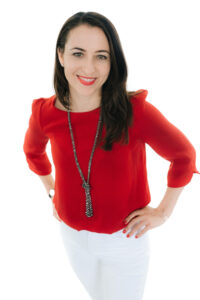 When I arrived at the beautiful Process venue on a sunny September morning, I felt like an imposter. Having read extensively about Hoffman, I was sure the other people there had much more ‘serious’ issues to deal with than I did, and by the end of the first day they would be wondering why I was there! This was typical of me, to be overly concerned about other people’s opinions and to try to see my life as positively as possible, rather than being honest about the issues I was facing.
When I arrived at the beautiful Process venue on a sunny September morning, I felt like an imposter. Having read extensively about Hoffman, I was sure the other people there had much more ‘serious’ issues to deal with than I did, and by the end of the first day they would be wondering why I was there! This was typical of me, to be overly concerned about other people’s opinions and to try to see my life as positively as possible, rather than being honest about the issues I was facing.
On paper, my life was great and I had a lot to be grateful for. I’d just transitioned from a fantastic career in banking, I lived in a beautiful house in London, had great friends and was planning to move to Canada with my husband for a year. And yet I felt unsettled and dissatisfied, stuck in a loop trying to work out how to change this.
I needed time to reflect, and it was whilst looking into silent retreats and yoga holidays that I came across an interview with a well-known actress in Net a Porter magazine, in which she mentioned the Hoffman Process. As soon as I read about it, I felt sure this was what I’d been looking for – a chance to work out what I needed to do to resolve my issues.
My parents had always been keen for myself and my sister to get the best possible education and move into well-paid careers so we could be financially independent. I knew that my strong work ethic and natural persistence came from my childhood patterns, but I hadn’t realised the impact it was having elsewhere in my life. That is until the Process taught me how our childhood patterns and beliefs shape us.
My sister knew from the age of ten that she wanted to be a doctor and that’s what she went on to be. I was unsure about my own future but thought investment banking looked like a well-paid starting point whilst I worked out what I really wanted to do. This turned out to be a great decision and led me to study for a degree in economics, which I found fascinating. After graduating, I spent the next 14 years in investment banking, quickly progressing into leadership roles.
Whilst I loved my work, it meant I was in a stressful and competitive environment with extremely intelligent people and frequently felt like an imposter. I now realise that I’d developed a strong inner critic as a child, constantly making me feel like I wasn’t making the grade – that I’d be found out and fired at any point.
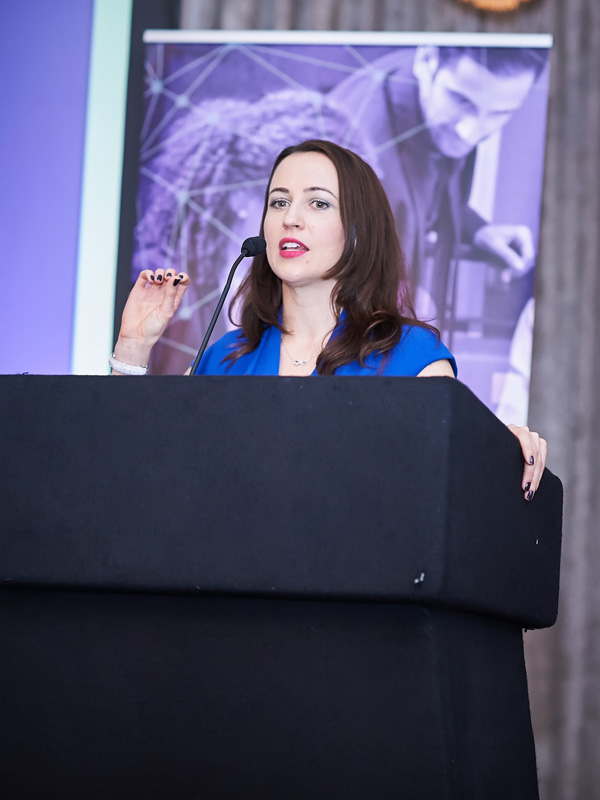 By the age of 24, my body began to send me messages that all was not well. My digestion, anxiety and energy levels became a problem, and I started having to take time off work. When I went to the GP, they had little to offer me except a diagnosis of Chronic Fatigue and the recommendation to find an easier job and to take anti-depressants. Refusing to accept this, I sought help from a nutritional therapist, who identified that I had adrenal burnout caused by chronic stress. I was fortunate that my employer let me scale back my work whilst I recovered and, with the help of my nutritional therapist, I learned how to take care of my body and restore my health. I was so inspired by what I learnt that I signed up for a degree in Nutritional Therapy with the Institute of Optimum Nutrition, studying in the evenings alongside my day job.
By the age of 24, my body began to send me messages that all was not well. My digestion, anxiety and energy levels became a problem, and I started having to take time off work. When I went to the GP, they had little to offer me except a diagnosis of Chronic Fatigue and the recommendation to find an easier job and to take anti-depressants. Refusing to accept this, I sought help from a nutritional therapist, who identified that I had adrenal burnout caused by chronic stress. I was fortunate that my employer let me scale back my work whilst I recovered and, with the help of my nutritional therapist, I learned how to take care of my body and restore my health. I was so inspired by what I learnt that I signed up for a degree in Nutritional Therapy with the Institute of Optimum Nutrition, studying in the evenings alongside my day job.
Having restored my health, I was able to refocus on work and spent time reflecting on what I was good at and what I wanted to do with my career. I moved banks to a more people-focused job and took up leadership roles where I was able to help guide and develop others. I thrived in this environment and my confidence grew. I got married and bought a house, ticking all the usual boxes. I was genuinely having a good time and enjoying the buzz of a busy London life, but with little time for self-reflection.
By now it was 2016 and my husband was considering an opportunity to move abroad for work. I had hit a natural decision point in my own career so I took the opportunity to leave my job and enjoy some time off in London before we relocated. Once I left my job, for the first time in many years I had time to stop. I took a good look at my life and realised my relationship was not the two-way street I’d hoped for. I’d already been aware there were issues and had decided I was the one who needed to change, throwing myself into reading self-help books and working on myself. It was during this time that I came across the Net a Porter article.
I’d already had one to one therapy, but the Process spoke to me as something that would take me more deeply into myself and really get to the core of why I wasn’t happy in my relationship. The fact that it would confront me with my fears was reassuring, as I knew I needed to face them. What I didn’t realise was that it would bring me the peace and self-acceptance that I really needed.
When filling in the application form, my imposter pattern kicked in, wondering if I had sufficiently deep issues to deserve to be on the course. A chat with someone at the Hoffman office put my mind at rest and made me feel like it would be a safe and nurturing experience, so I was excited to go.
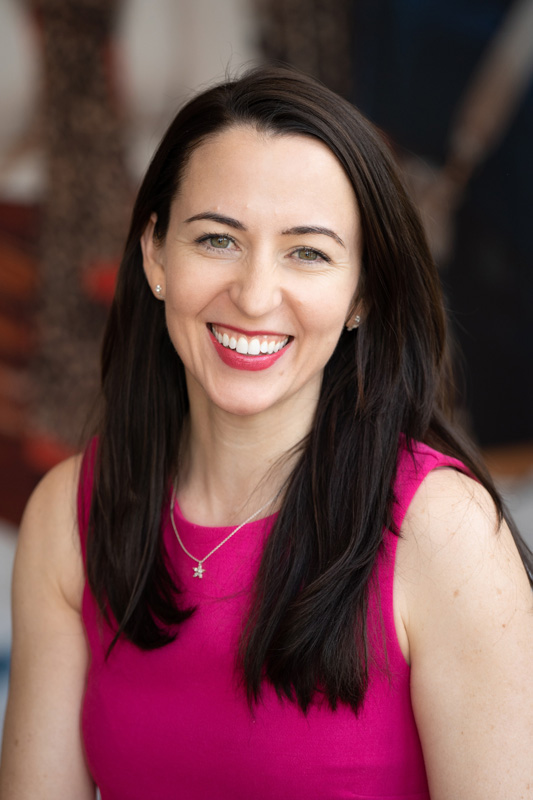 One of the outcomes I was hoping for was to discover what I was doing wrong in my marriage – I felt I needed to put more effort in. I came away with an answer I wasn’t expecting – that any relationship takes two people to work and that I couldn’t fix our problems alone. Instead of feeling that I wasn’t good enough as a partner, I learnt to accept myself as I was and realise that I didn’t need to fulfil someone else’s ideal of a ‘perfect’ partner in order to have a happy relationship.
One of the outcomes I was hoping for was to discover what I was doing wrong in my marriage – I felt I needed to put more effort in. I came away with an answer I wasn’t expecting – that any relationship takes two people to work and that I couldn’t fix our problems alone. Instead of feeling that I wasn’t good enough as a partner, I learnt to accept myself as I was and realise that I didn’t need to fulfil someone else’s ideal of a ‘perfect’ partner in order to have a happy relationship.
One of the great learnings I took away from the course was identifying my own behavioural patterns and how these were leading me to have imbalanced relationships. One of my most dominant patterns was the need to caretake other people and fix problems. These were patterns I’d been taught as a child, prioritising the needs and feelings of others above my own. As a result, I would step in to support and take care of others and then feel resentful when that wasn’t reciprocated. I also realised that I’d picked up the message that achieving is hard, so the answer to every problem was ‘try harder’. Consequently, instead of accepting a relationship wasn’t working, I’d focus on changing my own behaviour to make it work.
During the Process, I learnt to identify and understand my feelings so that I could make authentic choices and voice what I genuinely wanted or needed. It was also a great relief to see that I wasn’t responsible for everyone else’s feelings. With that realisation, the challenge was to be honest with others about how I felt and to be OK with the consequences. I learnt that a healthy relationship is one in which I can be the real me and not one in which I feel the need to suppress my true thoughts and feelings.
Before the Process, I was able to spot myself in these patterns when they were halfway through, now I know how to spot them at the start. I can use the Hoffman tools to interrupt them instead of getting stuck in the same old loops. I realised and accepted the part I played in creating unhealthy patterns in relationships and have been able to build more balanced relationships with healthier boundaries.
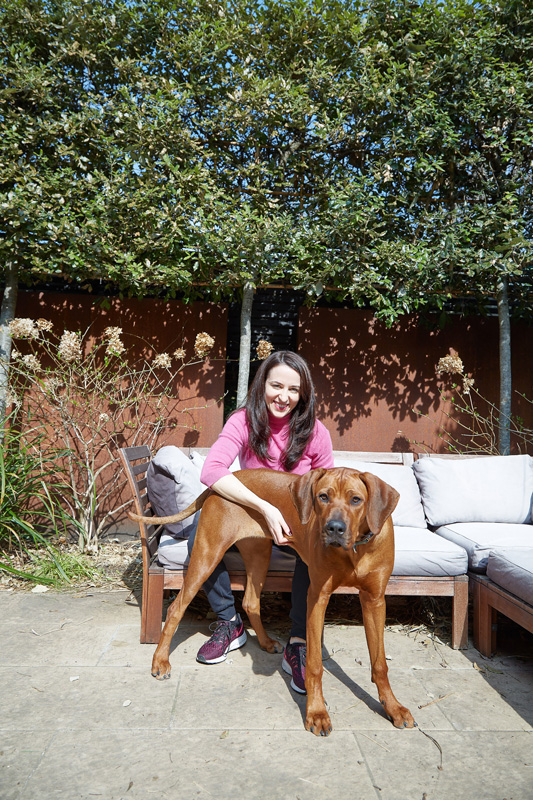 One of the reasons Hoffman is so helpful is because you’re going through the Process in a group, so you have many opportunities to observe your reactions to different personality traits. It was especially helpful for me to see people going through difficult emotions, as I had to resist my impulse to comfort and fix. I observed people in my group opening up at different points during the week, because each activity brought a fresh approach, and each of their experiences taught me something different. Seven years later and we’re still in touch as a group, celebrating our annual Hoffman anniversary and cheering each other on as we navigate life’s joys and trials.
One of the reasons Hoffman is so helpful is because you’re going through the Process in a group, so you have many opportunities to observe your reactions to different personality traits. It was especially helpful for me to see people going through difficult emotions, as I had to resist my impulse to comfort and fix. I observed people in my group opening up at different points during the week, because each activity brought a fresh approach, and each of their experiences taught me something different. Seven years later and we’re still in touch as a group, celebrating our annual Hoffman anniversary and cheering each other on as we navigate life’s joys and trials.
As I’d expected, the Process was challenging and there was nowhere to hide, but it was also incredibly supportive. If at any point I felt unsure or overwhelmed, I knew I had someone to talk to who could offer genuine support. This incredible environment allowed me to do the deep reflection I was seeking and achieve major shifts in my awareness.
I came away from the course with the tools to have more courageous conversations about what was truly important to me, and the confidence to handle whatever the future held. I felt able to address the issues in my relationship head on, and some months later my husband and I separated. Within 12 months, I’d moved house and started my coaching business, whilst also suffering a family bereavement. The incredible tools I’d learnt from Hoffman and the post-Process support were instrumental in helping me navigate these challenges in a healthy way.
I left the Process inspired to live a more authentic life and instead of following the conventional path that had been role-modelled for me, I’m now empowered to choose my own path, making authentic choices and depending on my own intuition and inner strength. I no longer feel the need to meet other people’s expectations and accept that other people’s judgements are their business.
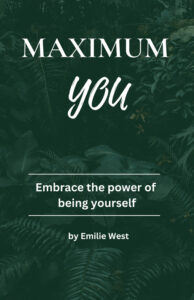 The Process had a huge impact on my work as a career coach, supporting others as they navigate their careers and learn to leverage their strengths to achieve their goals. I published my first book ‘Maximum You’ in December 2023, to give readers the tools to embrace authentic living and empower them to tune into their true desires and needs. Inspired by the Hoffman approach and my experience as a coach, I’ve filled the book with exercises and questions to help the reader better understand themselves so that they can bring authenticity to all aspects of their life including their career, relationships, home and health.
The Process had a huge impact on my work as a career coach, supporting others as they navigate their careers and learn to leverage their strengths to achieve their goals. I published my first book ‘Maximum You’ in December 2023, to give readers the tools to embrace authentic living and empower them to tune into their true desires and needs. Inspired by the Hoffman approach and my experience as a coach, I’ve filled the book with exercises and questions to help the reader better understand themselves so that they can bring authenticity to all aspects of their life including their career, relationships, home and health.
My top tips for living authentically:
- Take time out at least once a year to reflect on your life and tune into what is bringing you joy and fulfilment and what is causing you stress or dissatisfaction.
- Pay attention to the external messages you’re receiving about what should make you happy or what you should be doing with your life. Learning to tune these out will help you to be able to listen to your authentic inner voice and identify what you really want for yourself.
- Living authentically involves experiencing the full range of emotions, not just joy, so invest in learning to experience and process your emotions in a healthy way.
- If you want others to accept you as your authentic self, then you also need to do the same for them. When you find yourself criticising or judging others, try to shift your perspective to accepting that person fully as they are, without needing to change them.
Find out more about Emilie’s work at alchemycoaching.co.uk
Emilie’s book ‘Maximum You’ is now available to purchase on Amazon. To find out more and get a sample chapter, visit: maximumyou.co.uk
Emilie regularly shares career and leadership tips on her LinkedIn page:linkedin.com/in/emiliewest/




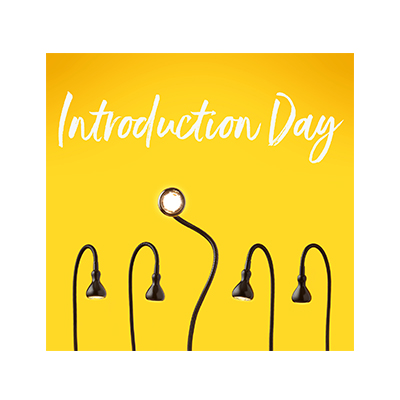

 Sign up to receive monthly newsletters from Hoffman
Sign up to receive monthly newsletters from Hoffman